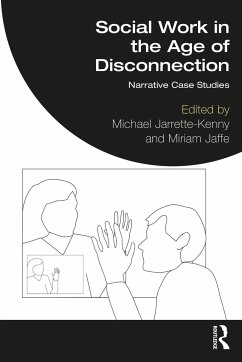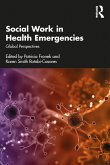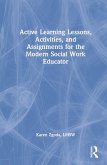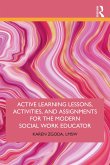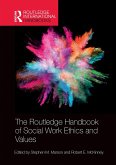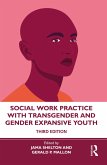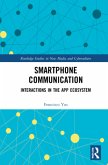This edited text brings together the stories of nine clinical social workers working during COVID-19, exploring the disconnections caused by a forced use of technology as well as the disconnections apparent in a time of social injustice.
Employing narrative strategies to capture this transformative moment of our history, these chapters explore the effects of technology and social media on psychotherapy, the delivery of services for the chronically mentally ill and elderly, as well as the consequences of recent cultural shifts on our conceptions of gender, sexuality, race, the immigrant experience, and political activism. While traditional research methodologies tend to address social problems as if they were divorced from the lives and experiences of human beings, these chapters employ phenomenological description of how the existing system functions, to identify theory-to-practice gaps and to recover the experiences of the person within the various institutional structures. Divided into three parts, each chapter begins with pre-reading and close reading questions and ends with writing prompts, allowing for practitioners and students to examine their own thoughts, and put what they have learnt into practice.
Suitable for students of clinical social work and practicing mental health professionals, this book is essential for those wanting to make sense of social work practice in our constantly evolving times.
Employing narrative strategies to capture this transformative moment of our history, these chapters explore the effects of technology and social media on psychotherapy, the delivery of services for the chronically mentally ill and elderly, as well as the consequences of recent cultural shifts on our conceptions of gender, sexuality, race, the immigrant experience, and political activism. While traditional research methodologies tend to address social problems as if they were divorced from the lives and experiences of human beings, these chapters employ phenomenological description of how the existing system functions, to identify theory-to-practice gaps and to recover the experiences of the person within the various institutional structures. Divided into three parts, each chapter begins with pre-reading and close reading questions and ends with writing prompts, allowing for practitioners and students to examine their own thoughts, and put what they have learnt into practice.
Suitable for students of clinical social work and practicing mental health professionals, this book is essential for those wanting to make sense of social work practice in our constantly evolving times.
'This is a sly book. It allegedly describes psychotherapy in the virtual age of COVID-19. But what these case studies really wonder is whether the human being is evolving into a new creature altogether. The narratives depict several paradoxes-male/female, disembodied/embodied, connection/disconnection, virtual/real, cases/stories-in our lives. These binaries, and the suffering endured by those trapped in them, are gradually revealed as fluid states. Gen Zs are not inalterably damaged by their extensive digital lives. Transgender identities herald categories yet unimaginably expansive. Case reports are indeed well-written stories. The gift of the paradox of social work is unveiled-the social life is seamlessly entwined with the work life, all of it relational, all of it formative of the self. A limitless horizon of possibilities appears, making room for ways of being awaiting our creative discovery.'
Rita Charon, Division of Narrative Medicine, Columbia University
'Herein, our frontline, essential workers voice what they learned during the pandemic. These experienced scholar-practitioners teach readers how to bridge new divides in our increasingly digital and socially fragmented world. You'll find opportunities for optimism, reflection, and discussion on every page.'
Widian Nicola, LCSW, DSW, NASW-NJ President, Assistant Professor, Seton Hall University
Rita Charon, Division of Narrative Medicine, Columbia University
'Herein, our frontline, essential workers voice what they learned during the pandemic. These experienced scholar-practitioners teach readers how to bridge new divides in our increasingly digital and socially fragmented world. You'll find opportunities for optimism, reflection, and discussion on every page.'
Widian Nicola, LCSW, DSW, NASW-NJ President, Assistant Professor, Seton Hall University

